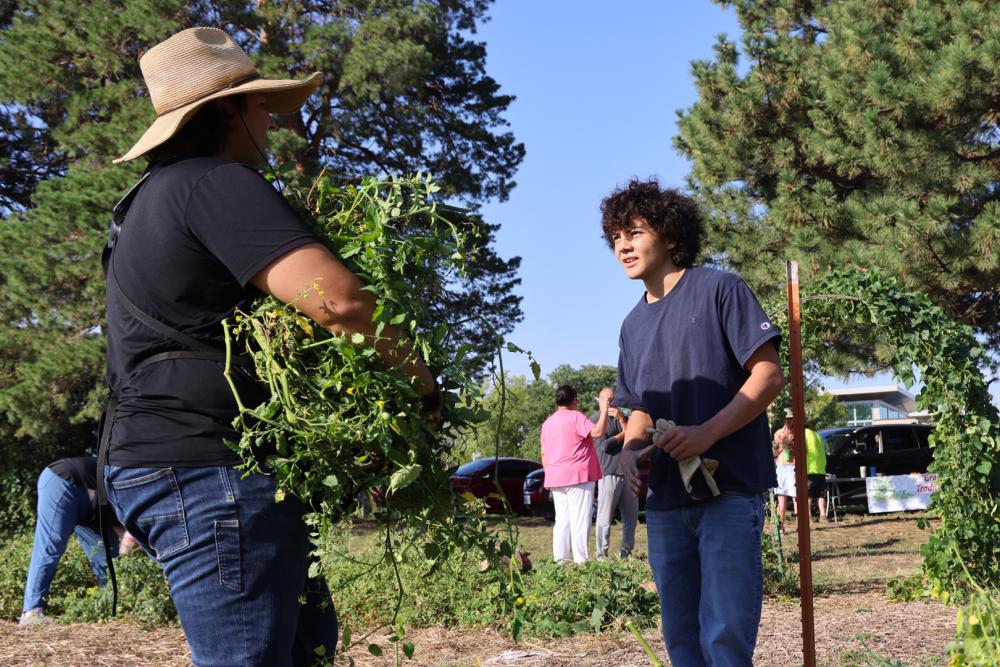
The Institute of Agriculture and Natural Resources and Native American Coalition, both housed at the University of Nebraska–Lincoln, have launched a new website providing business development aid for Indigenous entrepreneurs. The Turtle Island Trade Coalition website provides support and resources for Native food producers interested in expanding their customer base and the reach of their business, and membership applications are currently open.
“The original idea for the trade coalition was to reestablish intertribal trading,” said Timothy Thielen, the website’s program coordinator. “A lot of tribal groups are fairly isolated from each other, so we provide members with anything they might need to start developing their business — marketing issues, logistics, insurance, anything. The main point is to give them a place to share their story, their products and their journey, and connect them with other people who have those same passions.”
Funded through the U.S. Department of Agriculture’s $25 million Regional Food Business Center grant, awarded to the university’s Rural Prosperity Nebraska initiative in 2023, the website has two distinct purposes. First, it offers Indigenous entrepreneurs business development resources, support for submitting grant applications, information on setting up online selling sites, producer guides and consultation with the program coordinator. Second, it serves as a public-facing platform where entrepreneurs and business owners can create profiles to showcase and advertise their businesses and products.
Ted Hibbeler, an Extension educator with Rural Prosperity Nebraska and director of the Native American Coalition, who created the Turtle Island Trade Coalition, said the website will act as a central hub for Native businesses.
Thielen took the analogy one step further, connecting the idea to the concept of a traditional medicine wheel. The website is not meant to be a one-time visit. The resources, consultations, workshops and conferences available to members are meant to build on each other, creating an upward cycle of growth.
Regarding the materials available to Native entrepreneurs, Thielen said: “We employ more of a circular thinking rather than linear thinking, because that’s how a lot of Indigenous folks view their relationship to the world. People think differently based upon their cultural background, so we have to go out of our way to make sure that their beliefs and ideas are respected and that we’re able to provide materials for them that are in line with their views and their beliefs.”
In addition to becoming a central hub for food producers, the Turtle Island Trade Coalition is also meant to act as a link between traditional Native food production and the digital marketplace.
“There are many Indigenous food producers out there, but finding an Indigenous food producer is like trying to look for a needle in a haystack,” Hibbeler said. “This [website] is one way of talking to not only the tribal nations, but individual tribal members. Let’s get back to our traditional ways of food production. Let’s create a pathway to start trading with our traditional partners. We’re trying to connect the two worlds — the modern market system with our traditional tribal food production.”
Hibbeler said Native people have struggled to maintain their traditional access to and production of food. For instance, today, only about 15% of the Omaha Reservation land in Thurston County is farmed by Native producers. Both Hibbeler and Thielen see the website as a step in overcoming generations of struggle with Indigenous food sovereignty.
The name “Turtle Island” stems from a common Indigenous term for the North American continent. Hibbeler and Thielen hope that, eventually, the website also will include members from Canada and Mexico.
“A lot of the issues facing our current lack of resilience in our food system can be addressed by providing resources and education to Indigenous peoples, to continue to practice their traditional ways of living,” Thielen said.
To help share these resources, the Turtle Island Trade Coalition is hosting an in-person workshop, “Empowering Indigenous Entrepreneurs,” from 9 a.m. to 1 p.m. June 15 in the Arbor Suite of the Nebraska East Union. Registration can be found here.